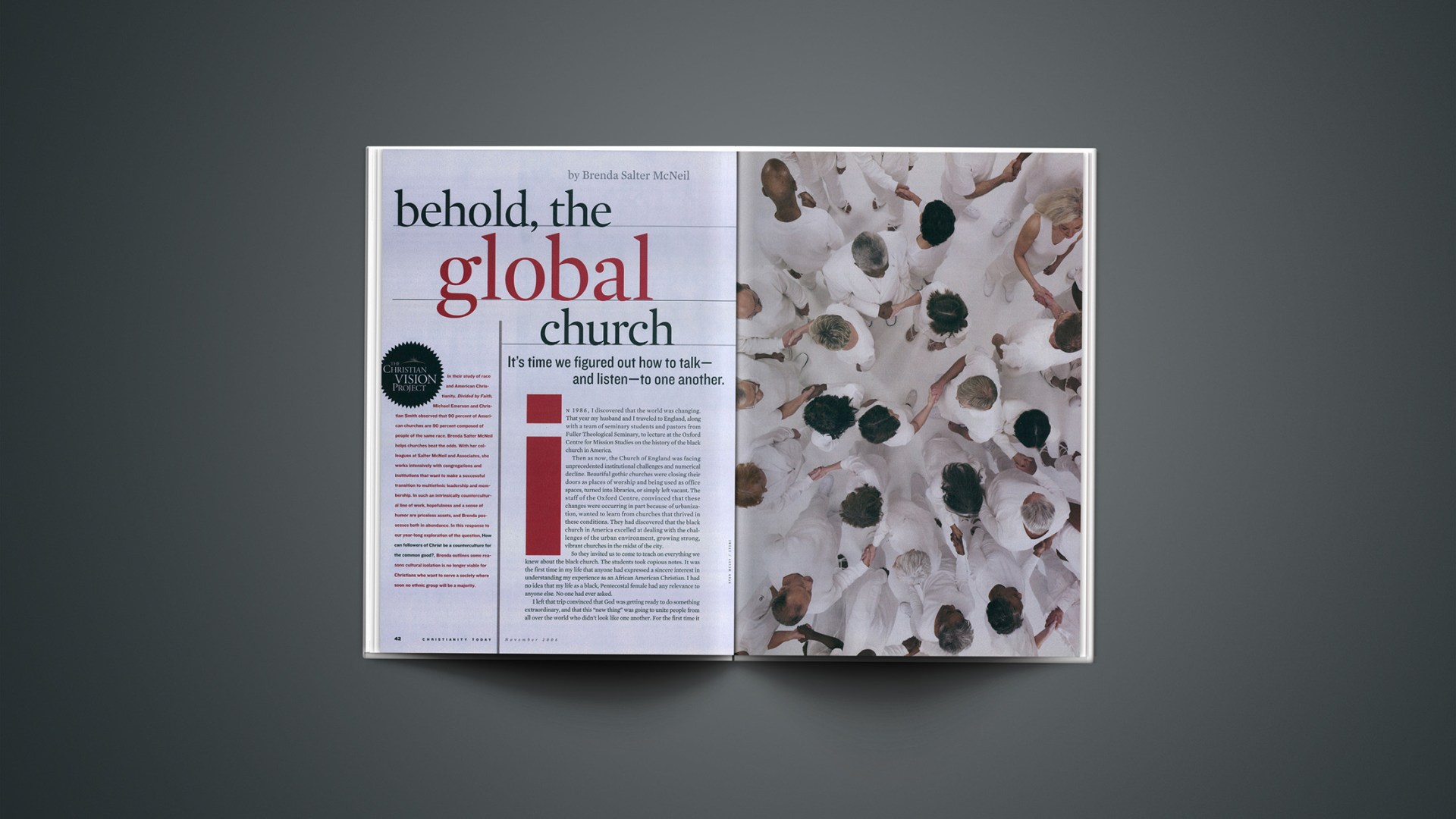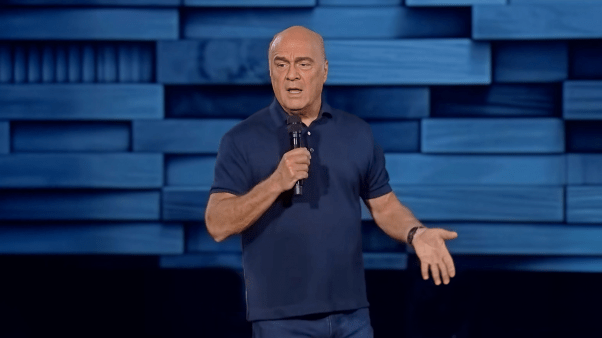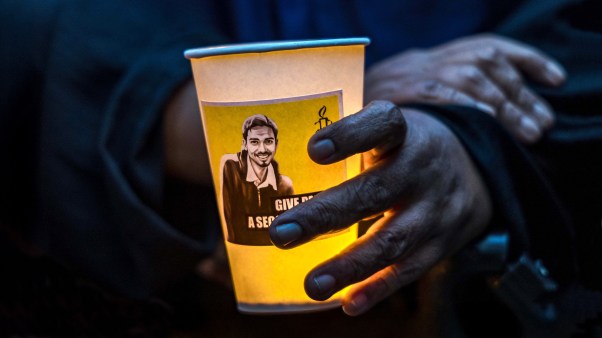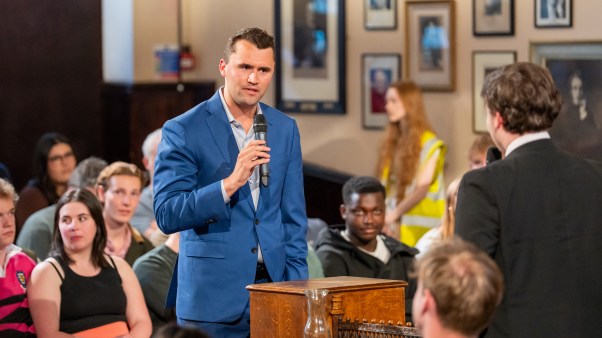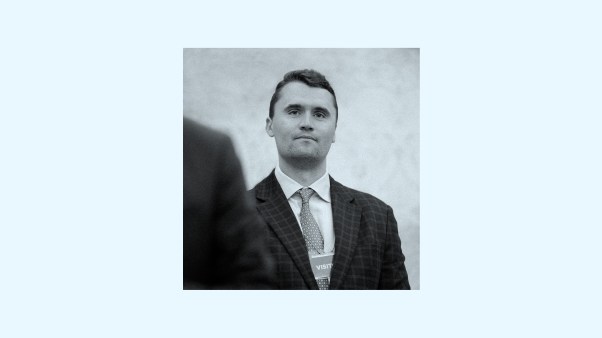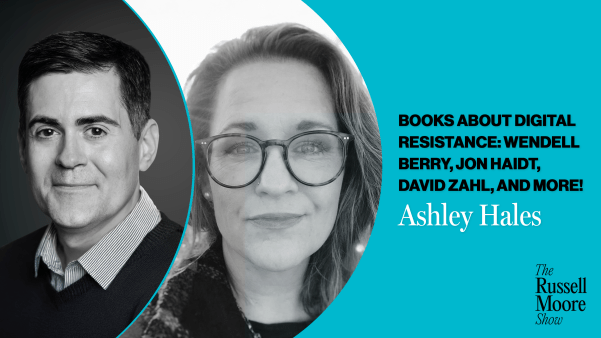In their study of race and American Christianity, Divided by Faith, Michael Emerson and Christian Smith observed that 90 percent of American churches are 90 percent composed of people of the same race. Brenda Salter McNeil helps churches beat the odds. With her colleagues at Salter McNeil and Associates, she works intensively with congregations and institutions that want to make a successful transition to multiethnic leadership and membership. In such an intrinsically countercultural line of work, hopefulness and a sense of humor are priceless assets, and Brenda possesses both in abundance. In this response to our year-long exploration of the question, How can followers of Christ be a counterculture for the common good?, Brenda outlines some reasons cultural isolation is no longer viable for Christians who want to serve a society where soon no ethnic group will be a majority.
In 1986, I discovered that the world was changing. That year my husband and I traveled to England, along with a team of seminary students and pastors from Fuller Theological Seminary, to lecture at the Oxford Centre for Mission Studies on the history of the black church in America.
Then as now, the Church of England was facing unprecedented institutional challenges and numerical decline. Beautiful gothic churches were closing their doors as places of worship and being used as office spaces, turned into libraries, or simply left vacant. The staff of the Oxford Centre, convinced that these changes were occurring in part because of urbanization, wanted to learn from churches that thrived in these conditions. They had discovered that the black church in America excelled at dealing with the challenges of the urban environment, growing strong, vibrant churches in the midst of the city.
So they invited us to come to teach on everything we knew about the black church. The students took copious notes. It was the first time in my life that anyone had expressed a sincere interest in understanding my experience as an African American Christian. I had no idea that my life as a black, Pentecostal female had any relevance to anyone else. No one had ever asked.
I left that trip convinced that God was getting ready to do something extraordinary, and that this “new thing” was going to unite people from all over the world who didn’t look like one another. For the first time it occurred to me that this “new thing” was going to uniquely and strategically include people of color. People who had previously been marginalized and minimized would now be used by God to provide prophetic leadership as agents of reconciliation and renewal.
There are times in history when people must accurately recognize what God is doing. These times are not determined or controlled by human beings. In the New Testament, Paul uses the word kairos, which means the right time, the set time, the opportune time, the strategic time, or the decisive time. If you will allow me the analogy, it is the “pregnant” time. When a man and woman conceive a child, they wait for months in anticipation of their child’s birth. Even in the age of ultrasound, when they’re able to determine the gender of the child and cherish grainy photos from the womb, they can only guess at what their child will look like. So they wait, hope, and pray in eager expectation, and perhaps also some anxiety. Then one night, usually when she least expects it, the woman starts to feel something different in her body. She turns to her husband, nudges him gently but firmly and says, “Honey, wake up. It’s time!” She doesn’t want him to tell her the time on his watch. She wants him to get up and spring into action, because “kairos time” is a decisive time that demands a response.
Birth Pangs
What are the decisive signs of the times for us as North American Christians? Is it possible that we are at a kairos moment, a time when God is moving, and we must choose how to respond? There are signs that we are. Like the signs that accompany a birth, they can prompt anxiety or nurture anticipation. But what cannot be doubted is that a time of radical change is approaching.
The population of our nation is changing. Ethnic minorities have doubled their share of the U.S. population since 1950, and according to the U.S. Census Bureau’s latest projections, almost all the growth in U.S. population over the next 50 years—from 282 million in 2000 to 420 million in 2050—will come from ethnic minorities, primarily Asians and Hispanics. On those projections, sometime shortly after 2050 non-Hispanic whites will become a minority in the United States.
This unprecedented shift in the demographics of the United States will be a serious challenge—and not just for whites, who will have to reassess their assumption of what counts as an ethnic “minority.” African Americans, who had been the largest minority group since the nation’s founding, saw that role pass to Hispanics in 2003. We already have evidence that this shift is producing birth pangs, from the streets of South Central Los Angeles to the poultry farms of the southeastern United States. Not long ago, British television presenter David Frost asked Billy Graham what he saw as the most important issue facing the church in the 21st century. Graham answered, “Racial and ethnic hostility is the foremost social problem facing our world today.”
Our economy is changing. For many decades middle-class, majority-culture Americans assumed that graduating from college would secure them a good job, a decent house, and a safe place to live. Yet not long ago I was in an Enterprise Rent-A-Car office on my way to a speaking engagement with college students. The young man waiting on me asked what I was planning to speak about. “Make sure you tell them that when they graduate they’re not going to a get a job,” he said. The cynicism in his voice was plain. “What was your major?” I asked. He had majored in computer science—a field he had thought would surely secure his future. Instead, he was renting cars.
Our economy has continued to be, by many measures, astonishingly productive. But as the benefits of that productivity flow to fewer and fewer people at the top, the rest of the country struggles to keep even, let alone get ahead. “In our multiethnic society,” writer Anthony Walton observes, “this conflict over resources and profits has tended to be ‘racialized.’ … Issues that are not racial in and of themselves come to be seen in racial terms because of our tendency to be tribal in allocating opportunity and blame.”
Economic uncertainty causes people to become self-protective, fearful, and ethnocentric. We have seen how deep tribal divisions go when resources are stretched to their limit in Iraq, the Balkans, and the horn of Africa. In America, too, there is the real risk that we will increasingly see people from different races as a threat to our opportunity and economic security.
Our worldview is changing. The previous American century was one of supreme confidence in the power of science and technology to improve the world. Now we are entering a postmodern era marked, among other things, by a loss of confidence in the Western, scientific worldview. This trend is clearest in medicine. In the third decade of the AIDS epidemic, we are no longer so sure that diseases will readily yield to our technical prowess. Alternative medicine, holistic therapies, and traditional medicine from other cultures are all rising in popularity.
Faced with these dramatic changes, we can choose one of two basic responses. The first is to retreat defensively into the assumed security of people “just like us,” protecting the narrow interests of our tribe. The truth is that many American Christians have chosen this path. Lacking any deep sense that God has invested some of his image in every culture and people group, we have stayed ethnically and racially segregated in our churches, our communities, and our institutions. Why not? We had no sense that we had anything to learn from people who were ethnically different from us. For many decades now, thanks to our excellent educational institutions, the United States has been a destination of choice for students from all over the world. Yet how often do any of us consult with an international student to get their perspective on the challenges we are facing? They are wise enough to learn from us, but frequently we have felt self-sufficient enough that we had no need to learn from them.
Yet in a world where none of us will be a member of the majority, where we will face persistent economic insecurity, and where the limits of our technological mastery will be palpable, we may find that retreating is no longer a viable option.
‘Wait up for us’
One day during our time in Oxford, my husband, Derek, found himself saying candidly that after centuries of trying to be included in the white church, black people had developed a vibrant church life and no longer wanted or needed to be accepted by white Christians. While he was expounding forcefully on this topic, an Anglican priest named John Mockford interrupted and said, “Wait a minute, lad. Your church is young and agile. Our church has become old and arthritic. We need you to wait up for us.” A single tear fell from his eye. He turned to a man sitting next to him and said, “This is embarrassing, eh?” There was a moment of total silence.
Then Derek said, with a new level of empathy in his voice, “By asking me to wait up for you, you have just empowered me to be in relationship with you.” That day we experienced an authentic moment of racial reconciliation—because one man had the courage to acknowledge his need for someone who was ethnically different from him.
In England, I began to understand that African Americans are uniquely positioned to be reconcilers all around the world. The tragedy of our past has uniquely qualified us to speak on issues of reconciliation, forgiveness, healing, and restoration—with the authority that is born of experience. As Nelson Mandela once said when asked how he became the president of South Africa, “I suffered my way into leadership.” If African Americans ever gained a sense of our global significance, we would view racial and ethnic hostilities around the world as opportunities for prophetic leadership. There are people all around the world who are waiting for us to come and share our unique perspective.
But we African Americans, too, need others as much as they need us. I once met a brother from Ghana, West Africa, who was completing his Ph.D. in the School of World Missions at Fuller Theological Seminary. During one of his trips home, he attempted to share the gospel with several people who lived in his community. Although they listened respectfully, no one turned to Jesus Christ. He later learned that they were intimidated by a witch doctor who lived nearby. The witch doctor kept a symbol of his authority hanging outside his home: a lattice basket, filled with water, that never leaked.
My friend decided to pray that God would empty the basket.
He stayed outside the home of the witch doctor and prayed all night that God would demonstrate his power. At some point he fell asleep. The next morning he was awakened by a commotion. The basket was empty. That town saw a mass revival as people learned about the God who caused the water to come out of the basket. There had been a power encounter—and God had won.
We who were raised in the West, with the West’s rational worldview, can try to explain that story away. But I believe we need African Christians to teach us how to preach the gospel in power. The West is overwhelmed with information for information’s sake and wary of truth that is rational yet impotent. The next major evangelist may well emerge from Africa or Latin America or China or Singapore.
We will need them, and simply saying that we will need them is a big step for many of us. The culture of America, of American Christianity both white and black, has been one of self-sufficiency and independence. But what God may be doing in this dramatic, perilous kairos moment is calling us to something different—a culture of interdependency, where we depend on one another across racial, ethnic, and national boundaries.
It is not easy to risk the vulnerability and uncertainty that such a time requires. We have to proceed on something stronger than idealism or optimism, taking a leap of faith that God is indeed at work in the global church, drawn from every tribe and language and nation, and has something for us in the unfamiliar faces of our brothers and sisters. But since God is in control of this kairos moment, not us, what we most need to do is what the expectant mother asks her husband to do at that crucial moment: Wake up. It’s time.
Copyright © 2006 Christianity Today. Click for reprint information.
Related Elsewhere:
Brenda Salter McNeil’s company, Salter McNeil & Associates, LLC has a website. Salter McNeil also keeps a blog.
Her book, The Heart of Racial Justice: How Soul Change Leads to Social Change can be purchased at Christianbook.com and other retailers.
Salter McNeil weighs in baby busters, and also on Oprah, in CT’s 2002 article.
Brenda Salter McNeil speaks about her membership in Christians for Biblical Equity in CT’s article “Gender: Biblical Feminists Press for Gender-Inclusive NIV.”
The Christians for Biblical Equity site also has an article adapted from her speech: “A More Excellent Way: Race and Gender Reconciliation Through Christ.”
In Christian Parenting Today, she tells parents how to teach their kids about race.
More Christian Vision Project articles include:
The Church’s Great Malfunctions | We should be our own fiercest critics, doing so out of the deep beauty and goodness of our faith. By Miroslav Volf (November 10, 2006)
For Shame? | Why Christians should welcome, rather than stigmatize, unwed mothers and their children. By Amy Laura Hall (September ,1 2006)
Our Transnational Anthem | ‘O say can you see … ‘ a church where many cultures work together in Christ? By Orlando Crespo (August, 2006)
Experiencing Life at the Margins | An African bishop tells North American Christians the most helpful gospel-thing they can do. Interview by Andy Crouch (July 1, 2006)
The Phone Book Test | Robert P. George explains how a simple experiment reveals the great divide in our culture. Interview by Andy Crouch (June 1, 2006)
A New Kind of Urban Christian | As the city goes, so goes the culture. By Tim Keller (May 1, 2006)
The Conservative Humanist | Those who are pro-life and pro-family should have no problem being pro-human. By Glen T. Stanton (April 21, 2006)
Loving the Storm-Drenched | We can no more change the culture than we can the weather. Fortunately, we’ve got more important things to do. By Frederica Mathewes-Green (March 3, 2006)
Habits of Highly Effective Justice Workers | Should we protest the system or invest in a life? Yes. By Rodolpho Carrasco (Feb. 3, 2006)
How the Kingdom Comes | The church becomes countercultural by sinking its roots ever deeper into God’s heavenly gifts. By Michael S. Horton (Jan. 13, 2006)
Inside CT
Better Than a Cigar | Introducing the Christian Vision Project. By David Neff (Jan. 13, 2006)

